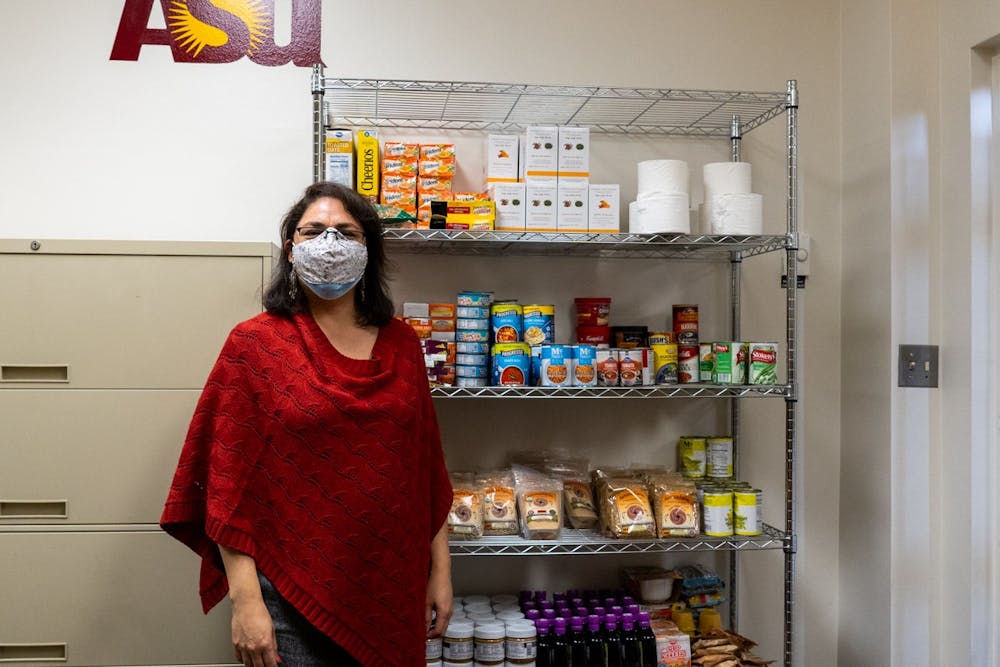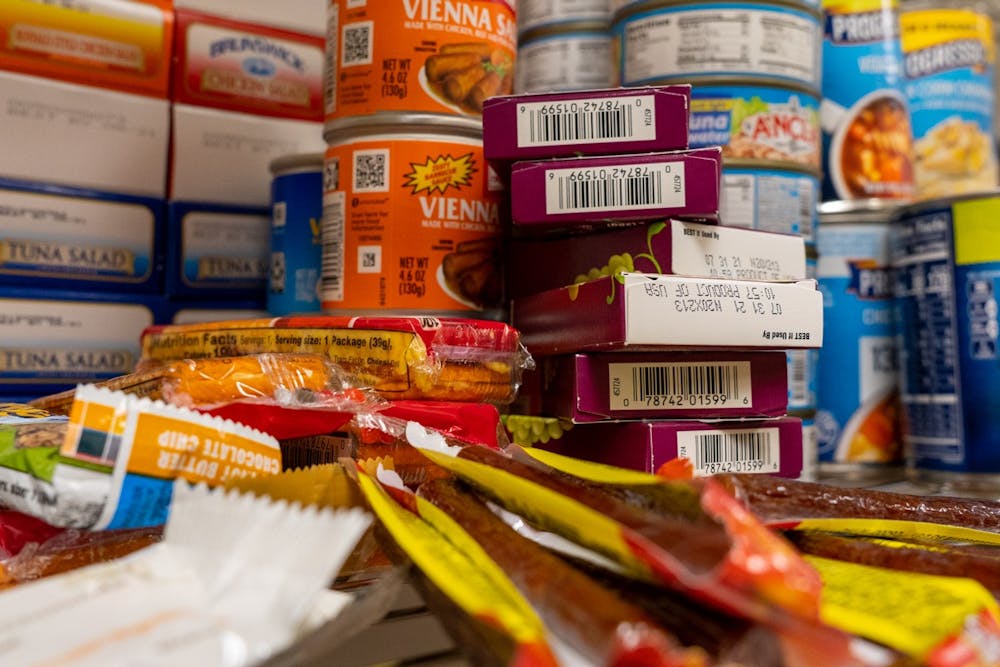Pitchfork Pantry, a student organization that combats hunger at ASU, launched "fork it up,” a podcast designed to open a discussion about food insecurity and the impact of food at the University.
The pilot episode of “fork it up” was released Jan. 25 and features an ASU student discussing his relationship with food. The second episode, centered around healthy habits, is also available.
Pitchfork Pantry plans to release a new podcast every Sunday, according to Alex Carrillo, a graduate student studying sustainability who pitched the idea of a podcast to help the Pantry gain name recognition on campus.
“I feel that if the Pantry presents this podcast, and it doesn't just necessarily focus on food insecurity, but all aspects of food, not only can they contribute to the public value for the community, but they can also raise awareness of the Pantry itself,” Carrillo said.
Each week, the podcast will feature a new student, Carrillo said, many of whom she found through a post she made on the ASU subreddit.
The Pitchfork Pantry, founded in 2017, is a student-run food bank that offers free food to ASU students in need. The Pantry aims to address immediate food insecurity on campus and help students get the nutrition they need.
Last semester, Pitchfork Pantry expanded its operations to the West and Polytechnic campuses in addition to locations in Tempe and Downtown Phoenix. In total, the Pantry has eight food distribution points, said Lindsay Pacheco, the president of the Pitchfork Pantry Downtown and a junior in medical studies.
Pacheco said the Pantry has three types of locations: walk-in pantries, pop-up pantries and tutoring center pantries.
Each type of location serves a slightly different purpose. Walk-in pantries allow students to pick out food items they want, while pop-up and tutoring center pantries provide pre-packaged bags for students to grab, Pacheco said.
The newest pantry location, on the third floor of Discovery Hall in Tempe, was launched in partnership with American Indian Student Support Services (AISSS).
Catalina Flores, a senior studying anthropology and human development, works at the AISSS center and helps guide students through the food pick-up process. The staff at the Discovery Hall Pantry work hard to accommodate all students and make them feel welcome, Flores said.
The Pantry provides different dietary options for students, including options for gluten-free, vegetarian and non-dairy food items, and can provide students a bag to take their food home in if they need one, Flores said.
"Depending on what they select, they can kind of personalize it to themselves," Flores said.
Laura Gonzales-Macias, the interim executive director of AISSS, said not only does the Discovery Hall Pantry get food dropped off from the Pitchfork Pantry itself, but it also receives food from Ramona Farms through Native American Connections. Ramona Farms supplies the Pantry with a variety of American Indian foods, she said.
Despite partnerships with food distributors and food banks like Ramona Farms and Matthew’s Crossing, a food bank in Chandler, Maureen McCoy, a lecturer in the College of Health Solutions and the faculty advisor to the Pitchfork Pantry, recognizes the student-led food pantry is only an immediate response to an important issue on campus.
“Oftentimes food pantries are kind of referred to as Band-Aids for a bigger problem,” McCoy said. “But a Band-Aid is there to help someone heal and if we can help that student heal through whatever situation they're going through, at that acute moment, I think we've served a really great role.”
Although the Pitchfork Pantry may not be able to combat the issue of food insecurity on its own, the new podcast aims to shed light on the problem.
Carrillo, the podcast's host, hopes the project will bring a sense of legitimacy to the pantry, showing ASU leadership the value the organization brings to the student body.
“I feel like having this podcast that shows that, hey, students are actually interested, they want to be a part of this project, it just comes to show that the resource is indeed needed,” Carrillo said.
Reach the reporter at alcamp12@asu.edu and follow @Anna_Lee_Camp on Twitter.
Like The State Press on Facebook and follow @statepress on Twitter.
Continue supporting student journalism and donate to The State Press today.





